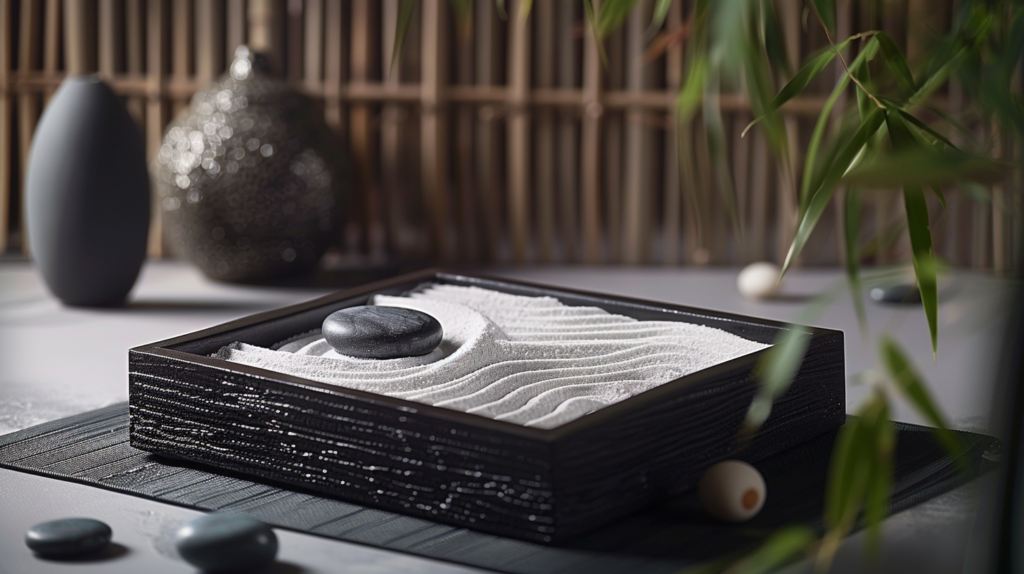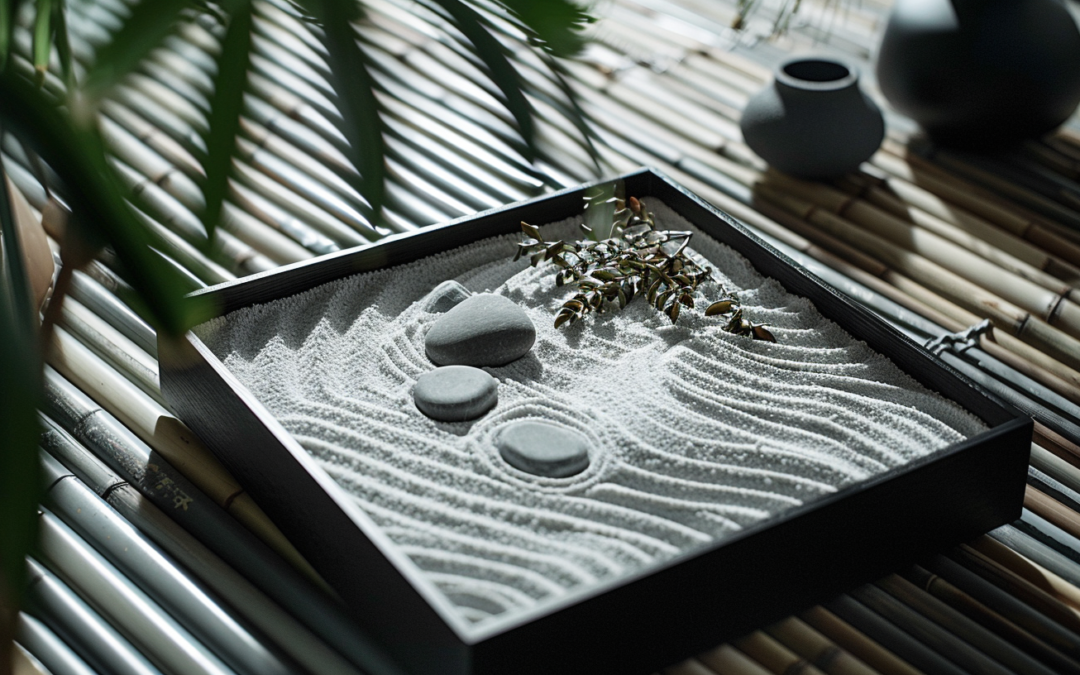Zen Cleansing: Awakening and Clarity
“Boring, monotonous cleaning? Not necessarily. In Zen Buddhism, it’s seen as a spiritual exercise. It helps not only to clean your home, but also to clear your mind and train your concentration. It makes cleaning more meaningful and enjoyable.”
For most people, washing up is as simple as putting utensils in the dishwasher, taking them out clean later, and putting them away. And what’s true for the dishes is also true for the rest of the housework: you do it as quickly as possible, in parallel with other activities, or you delegate it, as this often only leads to irritations between you and your housemates over who does what. Cleaning: too busy for that, don’t feel like it. It’s so low on the priority list that it’s often overlooked.
In a society where speed and efficiency are king, housework is often perceived as a thankless chore, relegated to the status of a secondary activity, or even avoided whenever possible. This perception can create a negative cycle where clutter builds up, increasing the feeling of being overwhelmed and further reducing the desire to tackle the problem. However, by adopting a mindful cleaning approach, this daily task can be transformed into a rewarding and even soothing practice.
Mindful cleaning invites us to approach housework not as a list of tasks to be ticked off as quickly as possible, but as an opportunity to refocus, clear the mind and improve overall well-being. This approach transforms housework into a moment of active presence, where every action, from tidying plates to purifying the living space, becomes an exercise in mindfulness.
By taking the time to consciously clean, we can not only improve the state of our environment, but also our inner state. Cleansing thus becomes a meditative practice, a moment for oneself, offering a thoughtful break from the hustle and bustle of everyday life. Far from being a source of irritation or conflict, it becomes a path to greater inner harmony and better stress management.
Another point of view
Is there another way to perceive cleaning? Absolutely, and you don’t have to look far to find it. In Zen Buddhism, cleansing is considered a spiritual practice. Cleansing our environment can sometimes literally be a path to spiritual awakening. For example, polishing a dusty lamp lets more light through, and cleaning windows improves the entry of natural light into the room. But beyond the physical aspect, cleansing also helps to clear the mind and sharpen concentration. In this sense, it can be just as valuable as meditation sitting on a cushion, concentrating on the breath.
This approach transforms the cleaning of our environment into an opportunity for inner cleansing. Every task, from the simplest like cleaning a lamp to the most complex like organizing a cluttered living space, becomes a chance to practice mindfulness. By concentrating fully on the act of cleaning, we can live more intensely in the present moment, helping to reduce stress and increase our sense of well-being.
Integrating this perspective into our daily routine can radically change our relationship with cleaning. It’s no longer a chore to be avoided or rushed, but an enriching practice that offers benefits far beyond a clean living space. It becomes a way of harmonizing our interior with our exterior, a way of cultivating serenity in our minds as well as in our homes.
Cleaning is a personal matter
Cleaning transcends the simple task of making a space clean; it also concerns the individual at the deepest level. In Japanese Zen Buddhism, the idea of “self” cannot be dissociated from one’s environment. It’s an illusion to think of ourselves as isolated entities. We always exist in relation to others and our environment. We are interconnected with everything and everyone, and in the act of cleaning, we forge links with the world around us: paying attention to our environment also means paying attention to ourselves.
This interconnection means that taking care of our living space is a way of taking care of ourselves. By cleaning, we’re not just tidying up our physical environment; we’re also working on our mental and emotional well-being. Every act of cleaning can be an act of self-care, a practice of gratitude towards the spaces that support and nourish us.
Adopting this perspective can radically transform our approach to cleaning. It’s no longer a chore, but a meaningful ritual, an opportunity to explore and strengthen our relationship not only with our home, but also with our inner being. By integrating mindfulness into these activities, we can find a new source of joy and balance in our daily lives.
Mindful cleansing means recognizing and celebrating our fundamental connection with the world around us. It’s an invitation to live more harmoniously, to recognize the impact of our environment on our state of mind, and to use cleaning as a tool to cultivate a mindful presence, both towards our living space and towards ourselves.

Tabula Rasa: wiping the slate clean, clearing away the clutter to start afresh
The Latin expression “tabula rasa” literally translates as “clean slate”. Historically, it referred to a wax tablet used in ancient times on which one could write, erase and rewrite. This image of a blank tablet, with no inscriptions whatsoever, has evolved to symbolize the concept of starting from scratch, erasing all traces of the past.
In a broader, philosophical sense, “wiping the slate clean” is often used to describe the process of forgetting or eliminating preconceptions, pre-existing ideas or previous experiences, in order to start afresh on a new, neutral basis. This may concern an individual seeking to forget past experiences in order to rebuild his or her life, or in a broader context, such as a society or community wishing to leave behind conflicts or failures in order to build a better future.
This notion also finds its way into various fields such as psychology, education and philosophy, where it is used to discuss the nature of the human mind, suggesting that a person’s mind at birth is a data-free “clean slate”, and that knowledge and character are acquired through experience and perception.
So the phrase “tabula rasa” encapsulates the powerful, optimistic idea that, whatever past circumstances or mistakes we’ve made, it’s always possible to turn over a new leaf, start afresh and shape the future with a new vision and new aspirations.
As we close the pages of our mindful cleaning reflection, let’s embrace the lightness of a wiped slate, ready to welcome new stories. We traveled through the principles of Zen Buddhism, rediscovering cleaning not as a chore, but as a path to enlightenment, a gesture of love towards ourselves and our environment. This practice, far from being a simple act of maintaining cleanliness, reveals itself to be a meditative ritual, a bridge between the care of the physical space and that of the spirit.
By choosing to view housework through this mindfulness prism, we offer our minds a new light, clarifying not only our homes but also our thoughts. Like a blank wax tablet, our perspective is renewed, allowing light to penetrate our lives more freely. The act of cleaning then becomes a symbol of our ability to positively influence our well-being and that of those around us, echoing the deep interconnection that binds us to our world.
So, the next time the prospect of housework presents itself to you, perhaps with a hint of heaviness, remember that every gesture, every movement, can be a celebration of life, a dance between you and your surroundings, an opportunity to wipe the slate clean and rediscover joy in the ordinary. And in that clear, open space you create, both outside and inside, you just might find a little more peace, clarity, and maybe, along the way, a little of that Zen light.

